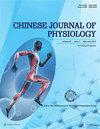碳水化合物漱口降低跆拳道疲劳指数踢腿频率测试速度
IF 1.6
4区 医学
Q4 PHYSIOLOGY
引用次数: 0
摘要
碳水化合物漱口水(CMR)可能会影响跆拳道运动员的间歇训练成绩。本研究探讨CMR对模拟跆拳道比赛前后运动员垂直起跳、踢腿速度和疲劳指数的影响。采用交叉实验设计,将13名训练有素的跆拳道运动员随机分为CMR试验和对照试验。热身后,参与者用6.6%的麦芽糊精(CMR试验)或矿泉水(对照试验)漱口。接下来,参与者接受了垂直跳跃、踢腿速度和最大踢腿次数的测试。测试结束后,参与者再次漱口,然后使用温盖特测试自行车进行5秒冲刺和25秒休息,以模拟跆拳道比赛。每轮重复4次,每次2分钟,共3轮。结果显示,CMR试验参与者在模拟比赛前后的疲劳指数显著低于对照试验。然而,两组运动员在垂直起跳、踢腿速度和模拟比赛方面的表现差异不显著。总体而言,研究结果表明,CMR降低了疲劳指数,但对训练后的跆拳道运动员的垂直起跳、踢腿速度和模拟比赛的表现没有影响。本文章由计算机程序翻译,如有差异,请以英文原文为准。
Carbohydrate mouth rinsing decreases fatigue index of taekwondo frequency speed of kick test
Carbohydrate mouth rinsing (CMR) potentially affects the interval training performance of taekwondo athletes. This study explored the effect of CMR on vertical jump, kicking speed, and fatigue index before and after simulated taekwondo competition. In a crossover experimental design, 13 trained taekwondo athletes were randomly divided into the CMR and control trials. After warming up, the participants used 6.6% maltodextrin (CMR trial) or mineral water (control trial) to rinse their mouth. Next, the participants underwent tests of vertical jump, kicking speed, and maximum number of kicks. After the tests, the participants rinsed their mouth again, followed by using Wingate testing bikes for 5-s sprint and 25-s rest to simulate taekwondo competitions. Four repetitions were performed in each round for 2 min for a total of three rounds. The results revealed that the fatigue index of the participants in the CMR trial before and after the simulated competition was significantly lower than that of the control trial. However, the two trials differed nonsignificantly in their performance in vertical jump, kicking speed, and the simulated competition. Overall, the study results indicated that CMR reduces the fatigue index but no change was observed in performance for vertical jump, kicking speed, and the simulated competition of trained taekwondo athletes.
求助全文
通过发布文献求助,成功后即可免费获取论文全文。
去求助
来源期刊
CiteScore
2.30
自引率
5.60%
发文量
36
审稿时长
6-12 weeks
期刊介绍:
Chinese Journal of Physiology is a multidisciplinary open access journal.
Chinese Journal of Physiology (CJP) publishes high quality original research papers in physiology and pathophysiology by authors all over the world. CJP welcomes submitted research papers in all aspects of physiology science in the molecular, cellular, tissue and systemic levels. Multidisciplinary sciences with a focus to understand the role of physiology in health and disease are also encouraged.
Chinese Journal of Physiology accepts fourfold article types: Original Article, Review Article (Mini-Review included), Short Communication, and Editorial. There is no cost for readers to access the full-text contents of publications.

 求助内容:
求助内容: 应助结果提醒方式:
应助结果提醒方式:


